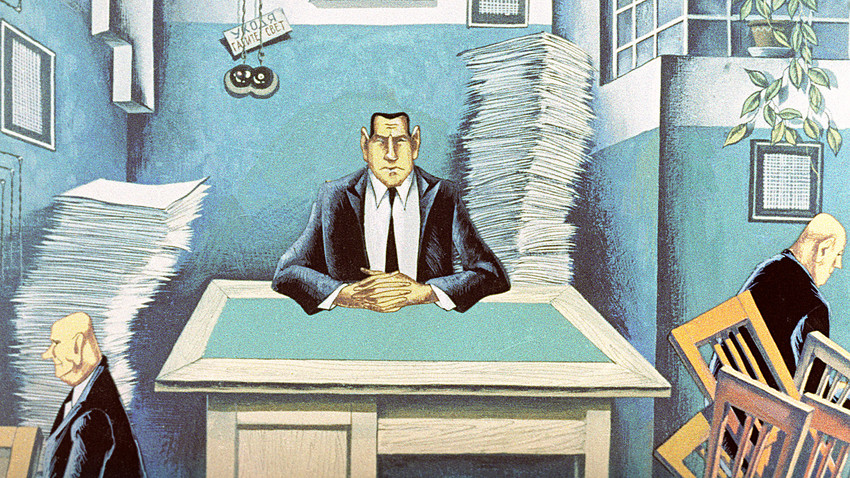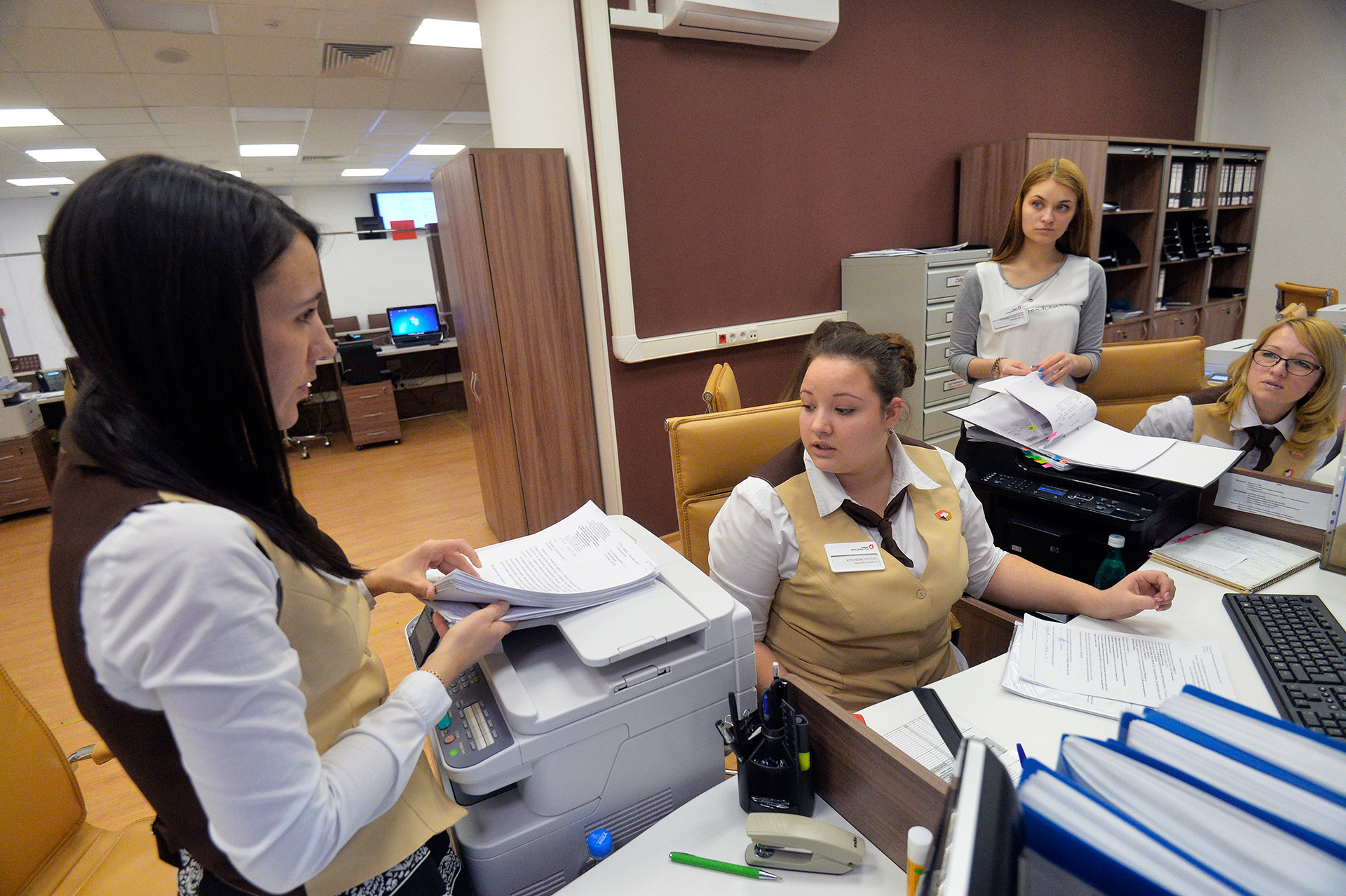
By saying “Russian bureaucracy,” we mean a great number of bodies - not only federal government, but the governments of regions and officials in the judicial sphere and police force. Did you know, for instance, that every apartment building in Russia has its own authorities? (People who manage housing and communal services.) If your sink breaks or toilet stops flushing you’ll need to deal with these people. But be warned: They will mostly behave in an agonizingly bureaucratic way. So here’s how to deal with the “red tape” attitude, or “watchman syndrome” as it’s known.
‘Watchman syndrome’

Unfortunately in Russia, civil servants don’t perceive themselves as servants, but rather as masters of the spheres they are working in. The notion comes from the 16th century, when there were few civil officials - but they were very powerful. In those times, to get something from the state (like protection or trade privileges), one had to bribe officials, who had no fixed monthly salaries and lived off a life of hard graft (we even did a special feature on the history of bribery in Russia). From this period comes the notion of “asking” the state authorities to do something for the people, as if it’s not the state’s primary function! Love it or not, Russians still comply.
A watchman or a doorman is naturally a person who possesses very little influence; this is why he (or she) likes to exert all their power if you need something. So if your sink needs fixing, the municipal worker at your district may make you wait until the weekend for the plumber to come just for kicks. For a person who is not very proficient in the Russian language, discussing the matter based on laws could be an impossible task. So, to get things your way, be persistent: Talk with officials respectfully, repeatedly explain your problem, and continue to politely ask for help. Never shout, argue, or appeal to the police or government officials. Keep in mind that every Russian bureaucrat tries to keep people away from his or her office, so if you refuse to leave and are politr there’s a chance your problem would be solved. And no, don’t try giving bribes, here’s why.
Don’t bribe, write reports

Employees of a "My Documents" integrated government services center in the town of Moskovsky in Moscow's Novomoskovsky Administrative Area.
Alexey Kudenko/SputnikCurrently, the Russian state is at war with corruption and bribery. Many high-ranking officials, including heads of regions and federal civil servants, are under investigation regarding their incomes. A few years ago, a law was introduced forbidding state officials of accepting gifts more expensive than 3,000 rubles (appr. $50).
Unofficially, most heads of government and municipal bodies forbid their subordinates from receiving any presents, let alone bribes. So our advice is - forget about bribery. The only effective way to influence bureaucrats who are slow at resolving your problems is to write reports to superior government bodies - and now you can do it online. Just ask your local friends for help on this issue.
Save your documents
“I was in awe at the amount of documents you have to keep and be ready to make available for officials here in Russia,” says Lucia, an Italian who lives and works in Russia. Obviously, every Russian person (apart from their passport) has a personal tax number, state medical insurance card, pension fund card, employment record book, birth certificate, and an array of documents regarding home ownership, and if somebody does business officially, then the amount of documents grows exponentially…
So, most Russians are aware that you have to keep your documents in order and safe - nobody wants to go through the hardships of pension fund card recovery. Make sure your travel ID, your immigration card,and other documents are kept where you know they are. And if you’re really paranoid, make copies of these documents, laminate them, and carry them around with you while keeping the originals at home - many Russians do this with their passports.
Learn the working hours of the institutions you need

A woman using an electronic terminal at the Novosibirsk Central District office of the Russian Federal Tax Service.
Kirill Kukhmar/TASSRecently, Russian state services have began moving into online form - using a portal, most Russians can pay their taxes and fees online. Sometimes, though, you need to go to the office - for example, to sign documents in person.
Here, it’s important to remember that Russian officials don’t work in the evening - usually working hours last until 5 p.m or 6 p.m., and there’s a lunch break (usually at a different for each institution). So, to save yourself waiting for hours or behind a locked door, take time to learn the working days and hours of the institutions you need. However, you’ll rarely be alone; there’ll be a queue, the last barrier you have to breach before facing the bureaucrat - and these queues are a little different from what you’re used to outside Russia.
“It’s weird when you first stand in a Russian queue - the people behind you are so close, it seems they want to get on your back,” Peggy, a German living in Moscow, notices. Well, that’s a long-standing tradition. In Soviet times, when goods were in scarcity, Russians learned to stand in queues for hours and sometimes days to get the desired books, crockery, or rare foods. Read more about this in our guide to 10 things you can only understand if you lived in the USSR.
If using any of Russia Beyond's content, partly or in full, always provide an active hyperlink to the original material.
Subscribe
to our newsletter!
Get the week's best stories straight to your inbox